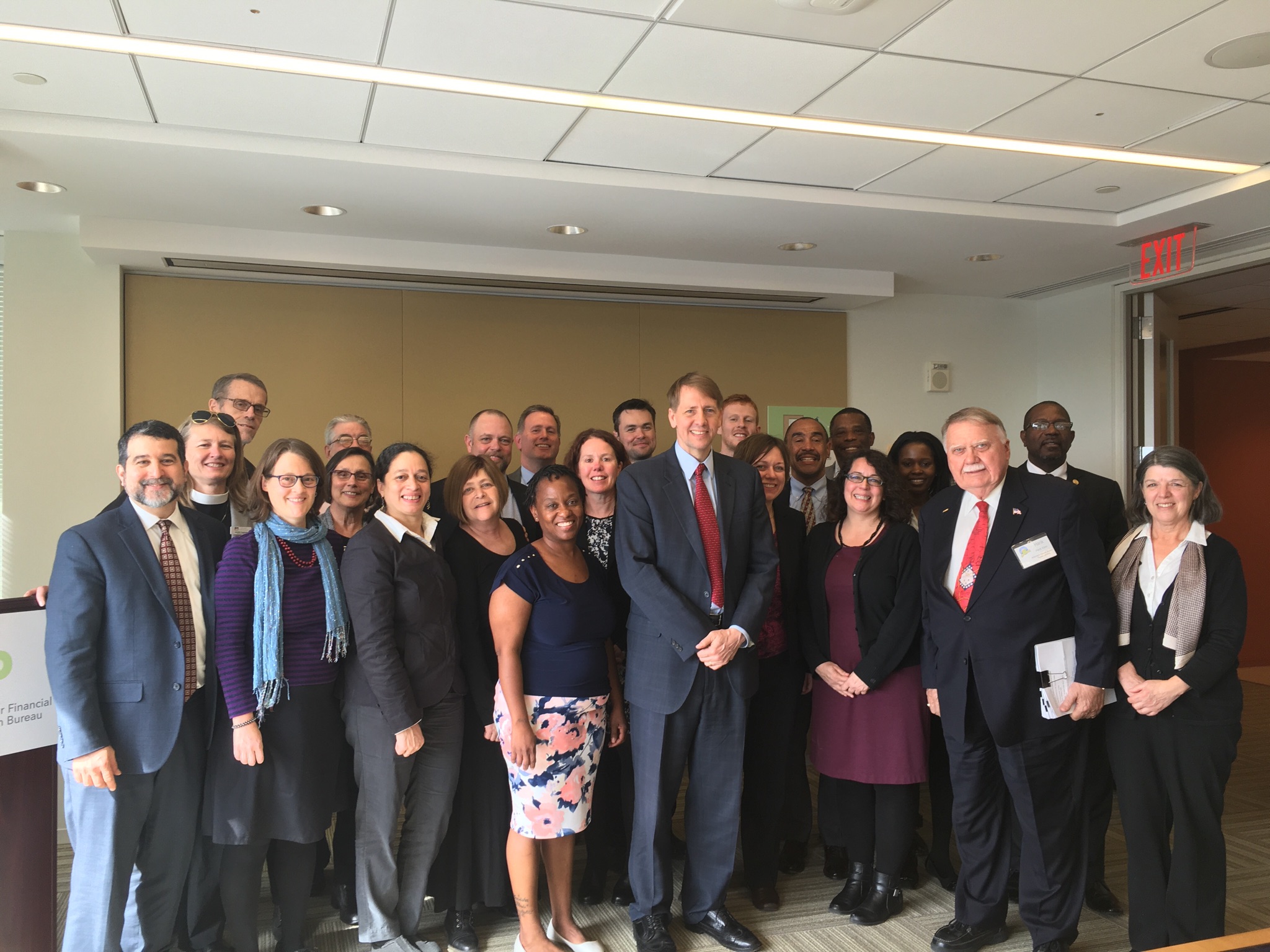Remarks by Jennifer E. Copeland to Richard Cordray, Director of the Consumer Financial Protection Bureau, delivered in Washington, DC, as part of a national coalition to address predatory lending. Representatives from 12 states and the District of Columbia met with Director Cordray and delivered letters from 13 states signed by more than 500 organizations representing faith communities, nonprofits, advocacy groups, etc. All were from states that are payday-lending free.
The Old Testament prophetic witness and the New Testament teachings of Jesus have a lot more to say about money than sex, in spite of the fact that many people of faith spend most of their time fretting about sex. The people of faith represented by the NC Council of Churches are, in fact, fretting about sex this week because our bathrooms are now a national cause celebré, but I actually want to talk about money – just like Amos and Jesus would.
Our faith communities, over 6,000 in NC, span urban, suburban, and rural areas from low income, middle income, to the one percent, and all of them would be negatively impacted in different ways by the return of payday lending to North Carolina. We are glad these loans are gone from North Carolina and never want to see them again.
Needy families and individuals rightly see faith communities as a place to receive essential services like food, clothing, and even shelter. But these are short-term solutions for an immediate crisis. These crises will spiral out of control when desperate families rely on high-interest loans to address emergencies such as illness, injury, or job loss. Far better for all of us to help the most vulnerable address their needs than allow them to be preyed upon by immoral lending practices, which will eventually force the poor to the desperate place of begging for food and clothing just to say alive.

